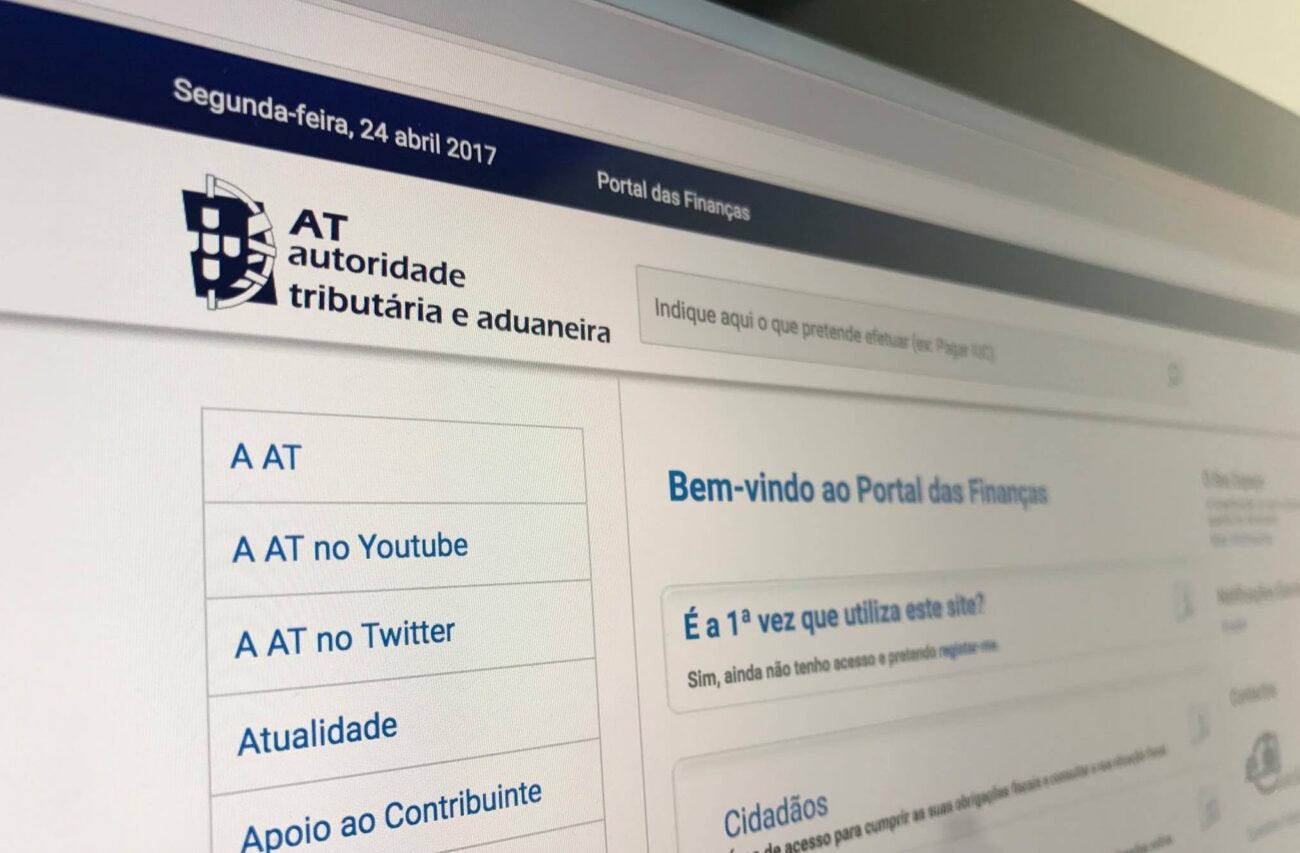Deadline for invoice validation ends today
The deadline was originally February 25, but technical issues prompted the Government to grant a three-day extension for taxpayers to confirm expenses on the e-Fatura Portal.
The Portuguese government has extended the deadline for taxpayers to validate their invoices on the Finance Portal until today, Friday, February 28.
The decision comes in response to a technical issue affecting the e-Fatura website in recent hours.
Under normal circumstances, the deadline for confirming expenses would have ended on Tuesday, February 25.
However, as has happened in previous years, the website has been experiencing errors that prevent some taxpayers from completing the validation process.
How to Validate Invoices on e-Fatura
To ensure that all invoices are correctly registered for tax deductions, follow these steps:
Register on the Finance Portal: You must be registered on the Finance Portal to access the e-Fatura system. If you haven’t registered yet, do so and wait for your access credentials. If you already have an account, keep your taxpayer number (NIF) and password ready.
Access the e-Fatura System: Log into the main page of e-Fatura, select the “Deductible IRS Expenses” menu, and enter the “Consumer” section. This area displays all expenses linked to your NIF, categorized by sector.
Check Deduction Categories: Verify that invoices are assigned to the correct category, such as health, education, or housing expenses. If an invoice is incorrectly classified, you can manually reassign it.
Validate Pending Invoices: If there are pending invoices, the portal will notify you. To validate them, select “Complete Invoice Information” and review expenses recorded by merchants with multiple business activities.
Attach Medical Prescriptions: For health expenses with a 23% VAT rate, you must indicate whether a medical prescription is associated with the expense.
Manually Enter Missing Invoices: If you forgot to request an invoice with your NIF, you can manually enter the details, including the merchant's tax number, invoice type, issue date, VAT rate, and pre-tax amount.
What Happens If You Don’t Validate Your Invoices?
Failure to validate invoices within the deadline will not result in penalties, but taxpayers may lose out on potential tax deductions. While invoices issued with a NIF are automatically recorded, some require manual validation to be eligible for tax benefits.
Benefits of Validating Invoices
Taxpayers who validate their invoices on time can benefit from:
Tax Deductions: Expenses in categories such as health, education, housing, and elderly care can reduce taxable income.
VAT Reimbursement: Partial VAT refunds are available for expenses related to public transportation, accommodation, restaurants, automotive repairs, beauty services, and veterinary care.
Better Expense Management: Regular validation ensures that all deductible expenses are properly categorized, maximizing tax benefits.
Website Issues and Deadline Extension
The extension was granted due to “a high volume of access,” which caused “temporary disruptions” on Monday and Tuesday.
The Ministry of Finance announced that invoice validation would remain available on the Finance Portal and the e-Fatura app until the end of February, without affecting other IRS deadlines.
From March 16 to 31, taxpayers will have the opportunity to contest the tax authority's calculations of their deductions. The IRS filing period for 2024 income tax returns will run from April 1 to June 30.
Currently, users attempting to validate invoices on the e-Fatura portal may encounter an error message stating: “Due to technical reasons, we are unable to process your request. Please try again later.”
This issue prevents some users from finalizing their invoice validation.
Importance of Invoice Validation
Confirming invoices issued throughout 2024 is crucial for maximizing tax benefits, potentially increasing tax refunds or reducing the amount owed.
The system displays invoices that remain unverified, which will only be considered for tax deductions if confirmed.
This applies particularly to purchases made at businesses with multiple economic activities, such as supermarkets, where items may fall under different tax-deductible categories (e.g., dining, health, or education).
To validate invoices, taxpayers must specify the appropriate deduction category. There are 12 main expense categories, including healthcare, education, housing costs, elderly care, fitness memberships, auto repairs, restaurant and hotel expenses, beauty services, veterinary care, public transportation passes, and newspaper subscriptions.
If an expense does not fit into any of these categories, it should be classified as “other,” contributing to general household expenses.
When validation is successful, the system allows multiple invoices from the same vendor to be confirmed simultaneously.
Taxpayers can apply the same category to all relevant invoices on the current page, streamlining the process.
With the new February 28 deadline, taxpayers now have additional time to ensure their invoices are correctly validated, helping them maximize deductions and tax benefits for the 2024 tax year.


